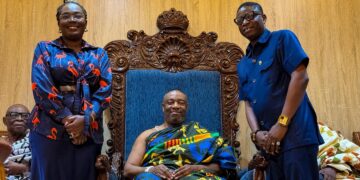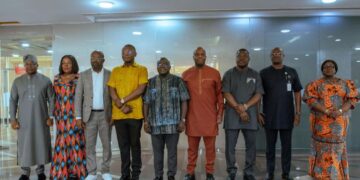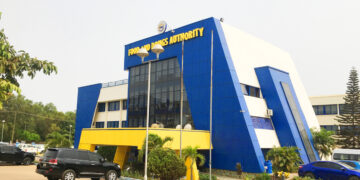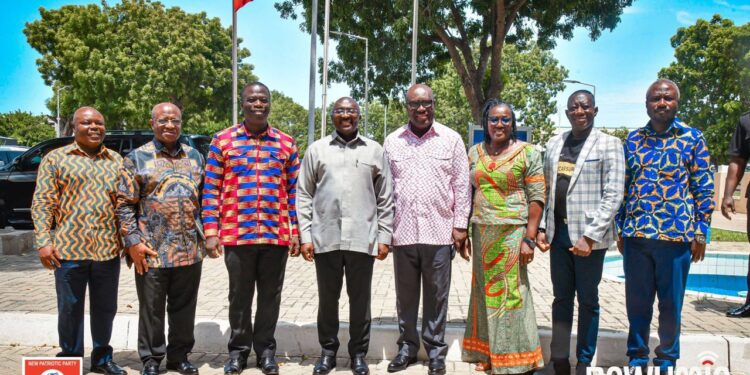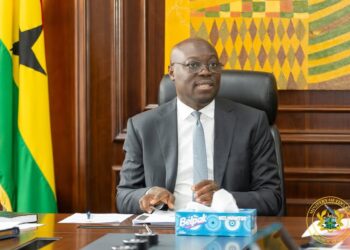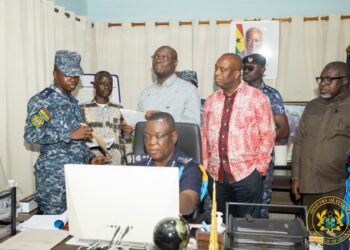On Wednesday 29th May, Alhaji Dr. Mahamudu Bawumia, the flagbearer of the New Patriotic Party (NPP), met with the Trade Union Congress (TUC) and emphasized his commitment to collaborating with the private sector to curb government borrowing and enforce fiscal discipline. This was part of his ongoing “Bold Solutions for the Future” initiative, where he has been meeting with various identifiable groups to discuss his policy proposals.
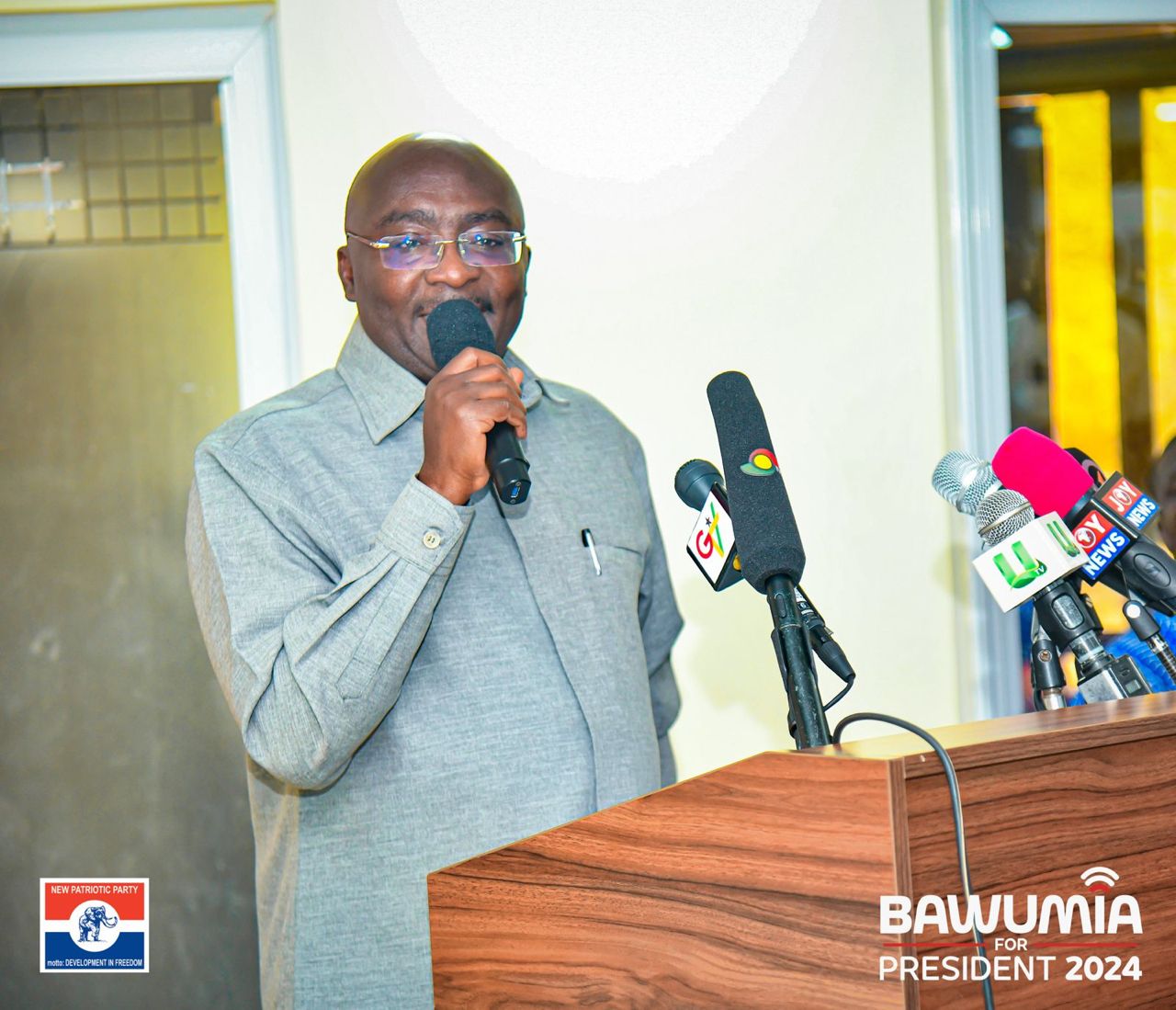
During the meeting, Dr. Bawumia reaffirmed his intention to streamline the government by limiting the number of ministers to no more than 50, a promise that extends to the leadership of state-owned enterprises. This, he believes, will promote efficiency and reduce unnecessary governmental expenditure. He also discussed offering incentives to the private sector to alleviate some financial burdens on the government, thereby curbing excessive spending.
The General Secretary of the TUC, Dr. Anthony Yaw Baah, expressed his admiration for Dr. Bawumia’s campaign slogan and vision, noting its positive impact on the country. He particularly highlighted Dr. Bawumia’s assertion that “Ideas, systems, and institutions are ingredients for transforming a country,” reinforcing the slogan, “It is Possible,” as a crucial message for national development.
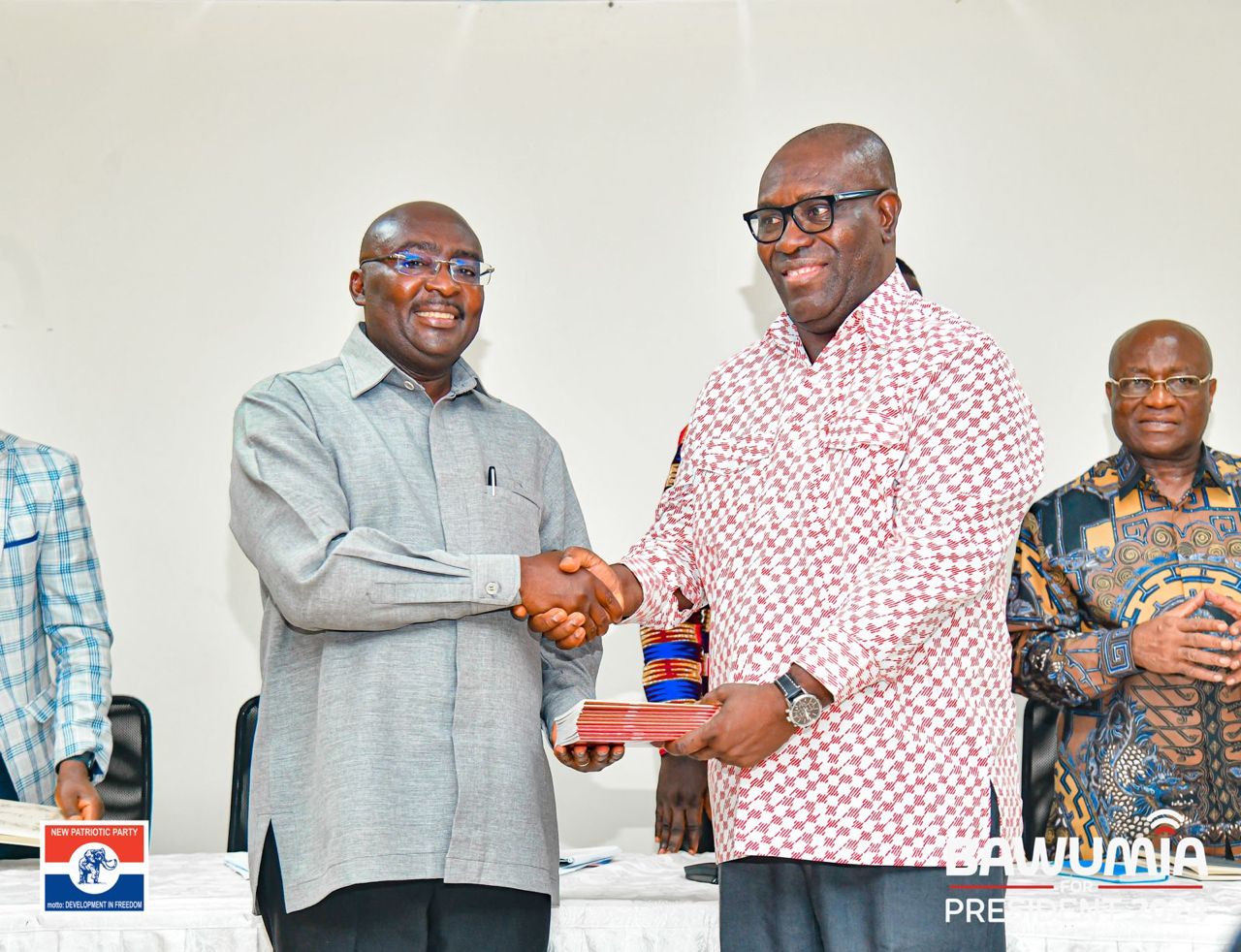
Dr. Baah presented the “TUC Manifesto” to Dr. Bawumia, indicating the union’s readiness to support the outlined objectives. He advocated for a constitutional amendment to rebalance the distribution of power between the President and the populace, emphasizing the need for collective action to resolve the ongoing power crisis definitively. Dr. Baah also lauded Dr. Bawumia’s vision for digitalization as a transformative idea that could significantly benefit the country.
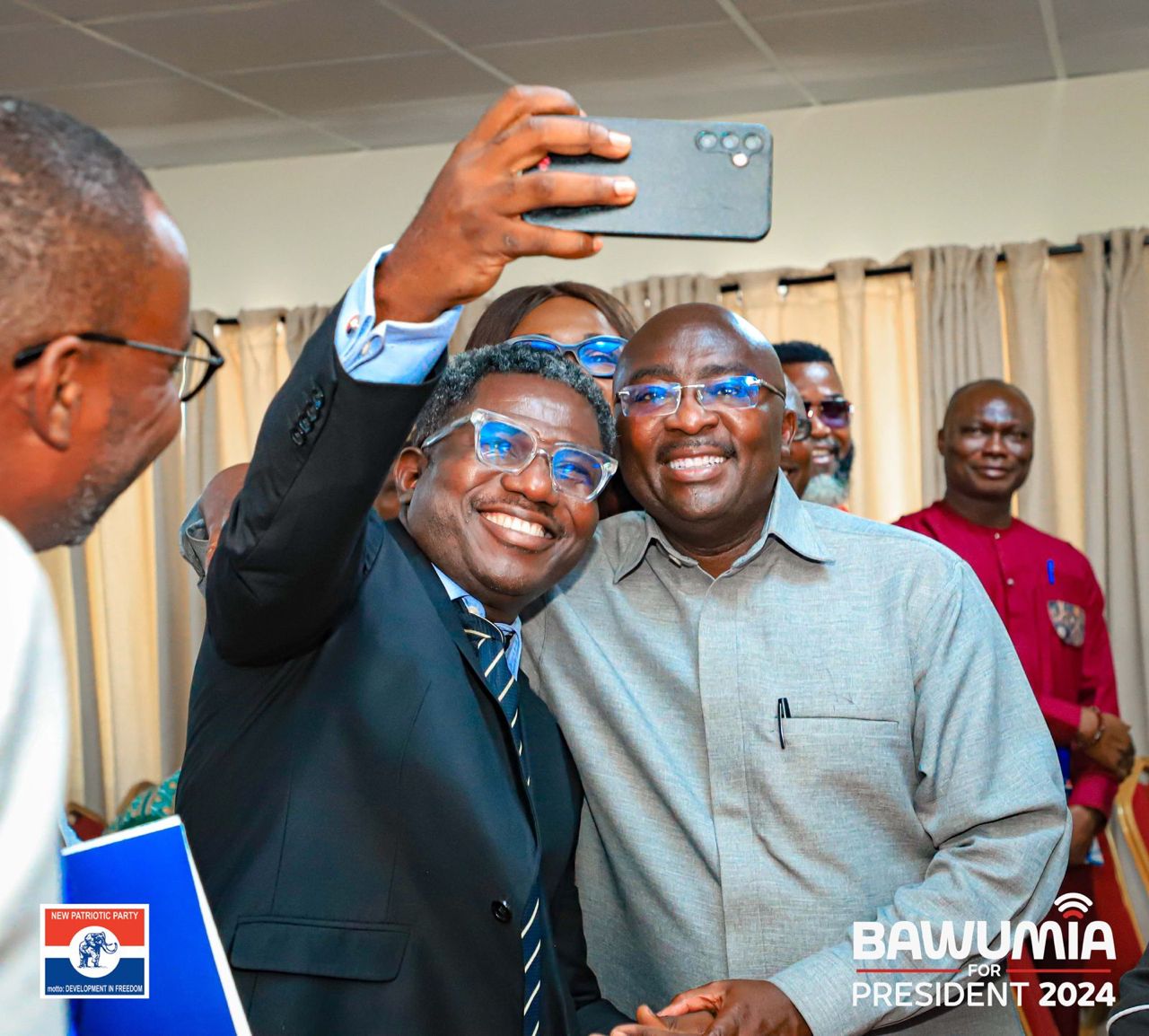
The outcomes of this meeting were multifaceted. Firstly, there was a mutual understanding and alignment on the need for fiscal discipline and reducing government size. Dr. Bawumia’s proposals to involve the private sector more deeply in economic activities and to streamline government operations resonated well with the TUC leadership. Secondly, the call for constitutional amendments to rebalance power dynamics indicated a shared commitment to more democratic governance structures. Lastly, the emphasis on solving the power crisis and advancing digitalization showcased a forward-thinking approach to addressing critical national issues.
The support of the TUC for Dr. Bawumia’s policies is a 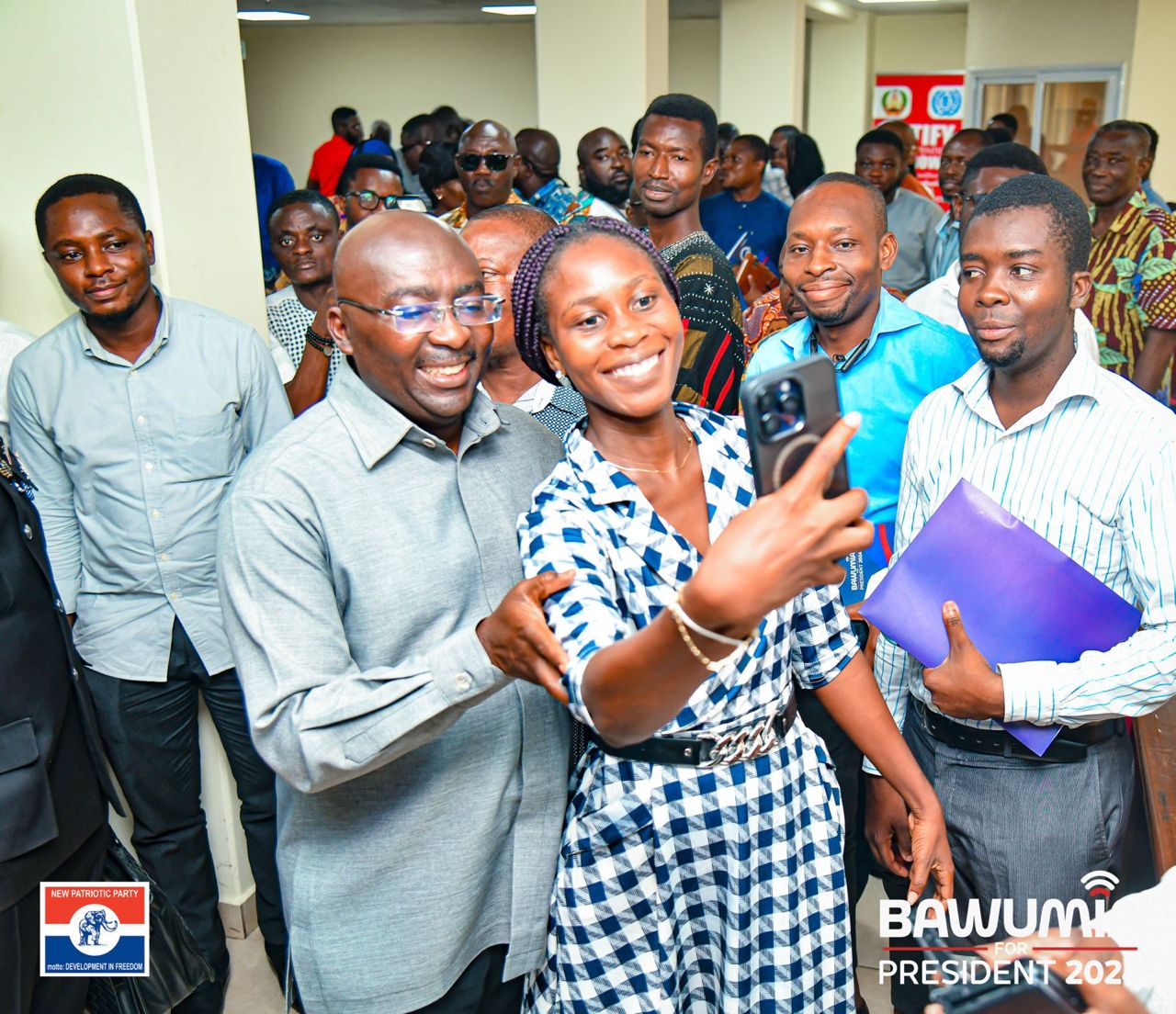 boost. It underscores the relevance and appeal of his proposals and suggests the existence of a broad-based consensus on the need for systemic changes. This support also buttresses Bawumia’s credibility and influence, positioning him as a candidate with pragmatic solutions and substantial backing from key societal sectors. The TUC’s endorsement again signals a collective readiness to work towards shared national objectives, potentially leading to more robust policy implementation and social progress.
boost. It underscores the relevance and appeal of his proposals and suggests the existence of a broad-based consensus on the need for systemic changes. This support also buttresses Bawumia’s credibility and influence, positioning him as a candidate with pragmatic solutions and substantial backing from key societal sectors. The TUC’s endorsement again signals a collective readiness to work towards shared national objectives, potentially leading to more robust policy implementation and social progress.

